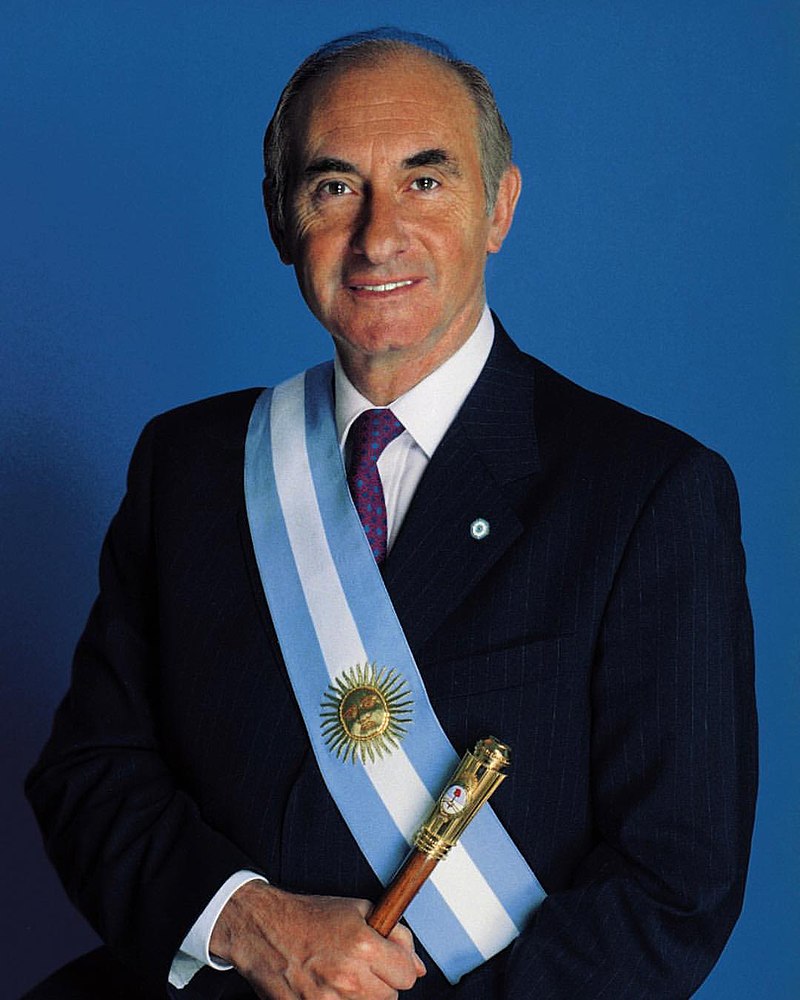
Fernando de la Rúa
Fernando de la Rúa was an Argentine politician who served as President of Argentina from 1999 until his resignation in 2001 during a severe economic crisis. His tenure was marked by rising unemployment and social unrest, culminating in a dramatic escape from the presidential palace via helicopter as protests escalated.
Born on Feb 15, 1937 (88 years old)
Global Media Ratings
Countries Mentioned
No country-level mention data available.
Interactive World Map
Each country's color is based on "Mentions" from the table above.
Recent Mentions
 Argentina:
Cetrángolo worked under the government of Fernando De la Rúa.
5
Argentina:
Cetrángolo worked under the government of Fernando De la Rúa.
5
 Argentina:
Fernando de la Rúa is mentioned as a historical figure in the radical party.
5
Argentina:
Fernando de la Rúa is mentioned as a historical figure in the radical party.
5
 Argentina:
Fernando de la Rúa was a former president of Argentina and a significant figure in the radical political landscape.
7
Argentina:
Fernando de la Rúa was a former president of Argentina and a significant figure in the radical political landscape.
7
 Argentina:
Fernando De la Rua was the president of Argentina during the economic crisis of 2001/2002.
4
Argentina:
Fernando De la Rua was the president of Argentina during the economic crisis of 2001/2002.
4
 Argentina:
Lopérfido served as an official under Fernando De la Rúa.
5
Argentina:
Lopérfido served as an official under Fernando De la Rúa.
5
 Argentina:
Fernando de la Rúa was the president during the coalition government known as the Alliance.
5
Argentina:
Fernando de la Rúa was the president during the coalition government known as the Alliance.
5
 Argentina:
Fernando de la Rúa was the president whose resignation followed the crisis of 2001.
5
Argentina:
Fernando de la Rúa was the president whose resignation followed the crisis of 2001.
5
 Argentina:
Fernando de la Rúa's administration was marked by a significant defeat in the legislative elections of October 2001.
5
Argentina:
Fernando de la Rúa's administration was marked by a significant defeat in the legislative elections of October 2001.
5
 Argentina:
Fernando de la Rúa resigned as president after the crisis of 2001.
5
Argentina:
Fernando de la Rúa resigned as president after the crisis of 2001.
5
 Argentina:
De la Rúa warned of social disintegration and loss of the nation in Congress.
4
Argentina:
De la Rúa warned of social disintegration and loss of the nation in Congress.
4